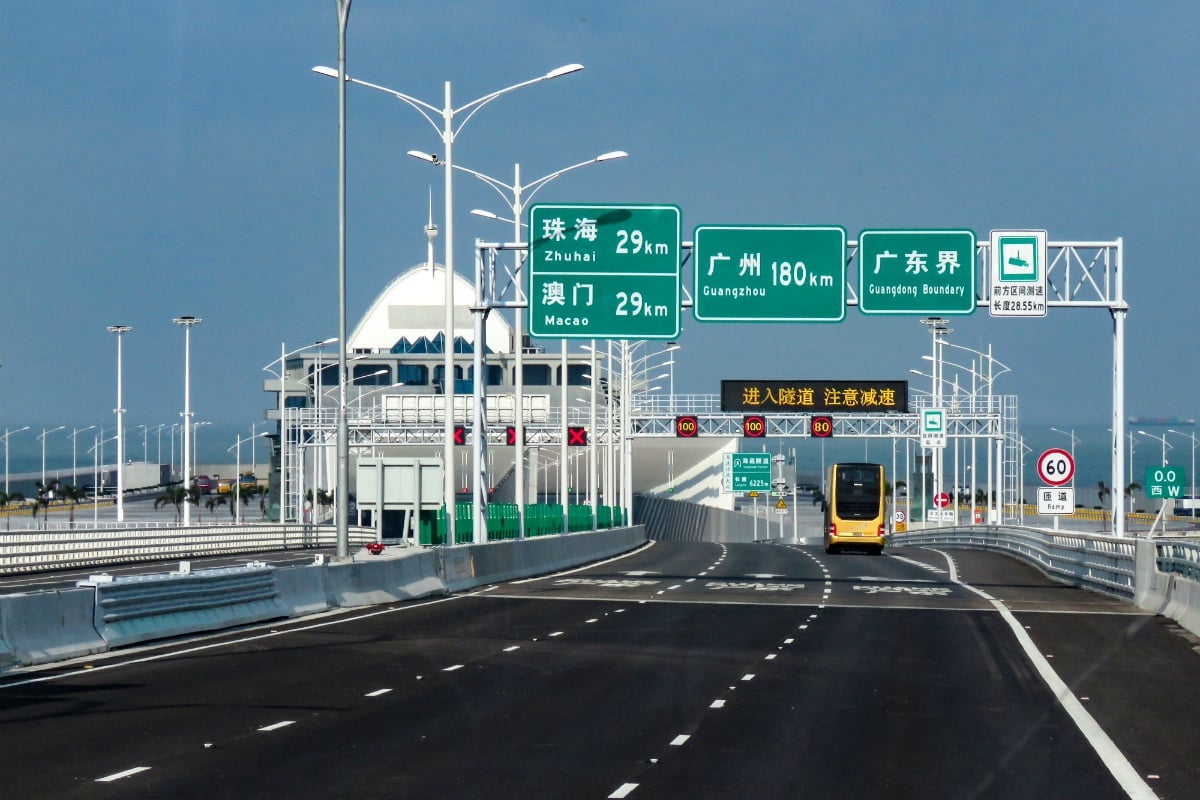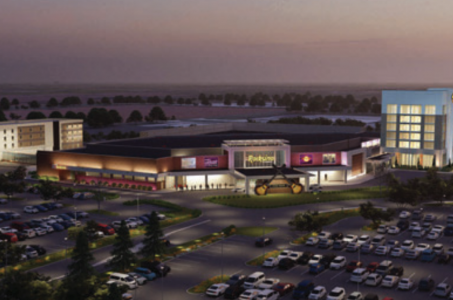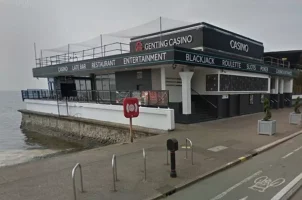Macau Neighbor Zhuhai Hopes to Entice Casino Operators Across Bridge With MICE
Posted on: September 27, 2019, 03:45h.
Last updated on: September 26, 2019, 05:22h.
Macau neighbor Zhuhai is preparing to auction off a 226,000-square-meter (55.8 acres) plot of land that it hopes will entice the multibillion-dollar casino giants to cross the bridge and invest in new hotels and convention space.

Hong Kong, Macau, and Zhuhai – collectively known as the Greater Bay Area following last year’s opening of the 34-mile sea bridge crossing that links the three regions – are all betting on increased business travel. For Macau, the world’s richest gaming hub, local leaders are pushing for diversification in an attempt to reduce its reliance on casino taxes.
MICE is the name of the new game, which is an industry term for “meetings, incentives, conventions, and exhibitions.”
Zhuhai officials say the auction process for the plot of lanced located north of the Zhuhai port will commence October 9 and run through October 18. The opening bid is 5.64 billion yuan ($790 million).
The plot of land is located near where the Hong Kong-Macau bridge dumps travelers off in Zhuhai. The world’s longest sea crossing cuts automobile time between Hong Kong and Macau from around four hours to 35 minutes.
Gambling is forbidden in China, Macau being the lone exception – meaning, no casinos can be built in Zhuhai. The People’s Republic also has a state-run lottery.
MICE, Hotel Focus
Macau’s six casino operators presently account for nearly 90 percent of the enclave’s tax revenue.
Macau Liaison Office Director Fu Ziying and the International Monetary Fund (IMF) have both recommended that the Special Administrative Region (SAR) support incentives that encourage the casino concession holders to invest in more hotel rooms and MICE facilities. Morgan Stanley said in a note this week that Macau doesn’t have enough hotel rooms to support growing mass market visitation.
With land limited, Macau could authorize certain incentives for the casinos to invest in non-gaming projects in nearby places like Zhuhai.
“If the parcel of land is sold, it will set a benchmark for the property market, as well as a benchmark for land for tourism in the Greater Bay Area as a whole,” said Vincent Cheung, managing director of Vincorn Consulting and Appraisal, speaking to the South China Morning Post.
He added, “Zhuhai wants to become a leader in tourism in the Greater Bay Area. Zhuhai was already in the business tourism industry long before Macau showed up. But the rise of Macau’s casinos has led to a decline in customers coming to Zhuhai.”
Zhuhai is located north of the Macau Peninsula, while Hengqin Island, another Macau neighbor that’s much larger in terms of land size, is located just southwest of the Cotai Strip. Hengqin is already being used by Macau casinos for MICE developments.
Land Doesn’t Come Cheap
The $790 million opening bid might seem a tad rich, even considering Macau casinos won more than $37.8 billion on their casino floors last year. The initial offering equates to $14.15 million per acre.
But, by comparison, $790 million for almost 56 acres in the Greater Bay Area apparently isn’t all that atypical.
Example: Wynn Resorts agreed to pay the Macau government $193 million in 2011 for 51 acres on the Cotai Strip, which is now home to its $2.5 billion Wynn Palace resort. But unlike the Zhuhai land sale, Wynn doesn’t actually own the acreage, but simply leases it from the enclave.
Related News Articles
Indiana Businessman Who Lost License Part of Hard Rock’s Terre Haute Venture
Gambling Industry Insiders Weigh In on UK’s Gambling White Paper
Genting Shuts Down UK Casino Over Structural Stability Concerns
Most Popular
Las Vegas Overstated F1 Race’s Vegas Impact — Report
Vegas Strip Clubs Wrestle in Court Over Animal Names
Mega Millions Reportedly Mulling Substantial Ticket Price Increase
Most Commented
-
End of the Line for Las Vegas Monorail
— April 5, 2024 — 90 Comments -
Mega Millions Reportedly Mulling Substantial Ticket Price Increase
— April 16, 2024 — 6 Comments -
Long Island Casino Opponents Love New York Licensing Delays
— March 27, 2024 — 5 Comments -
Nearly Abandoned Mall Outside Vegas Soon to Have Only One Tenant
— March 12, 2024 — 5 Comments
















Last Comment ( 1 )
Informative article, thank you, however I'm not sure it's correct to say that Wynn Palace is "on the Cotai Strip" as Las Vegas Sands Corporation has USPTO trademarks on the phrase "Cotai Strip" in the fields of both hotel reservations and casinos, and I believe they have similar trademarks in Macau. So technically "Cotai Strip" may only apply to Sands' Cotai properties. That could be the subject of another informative article...